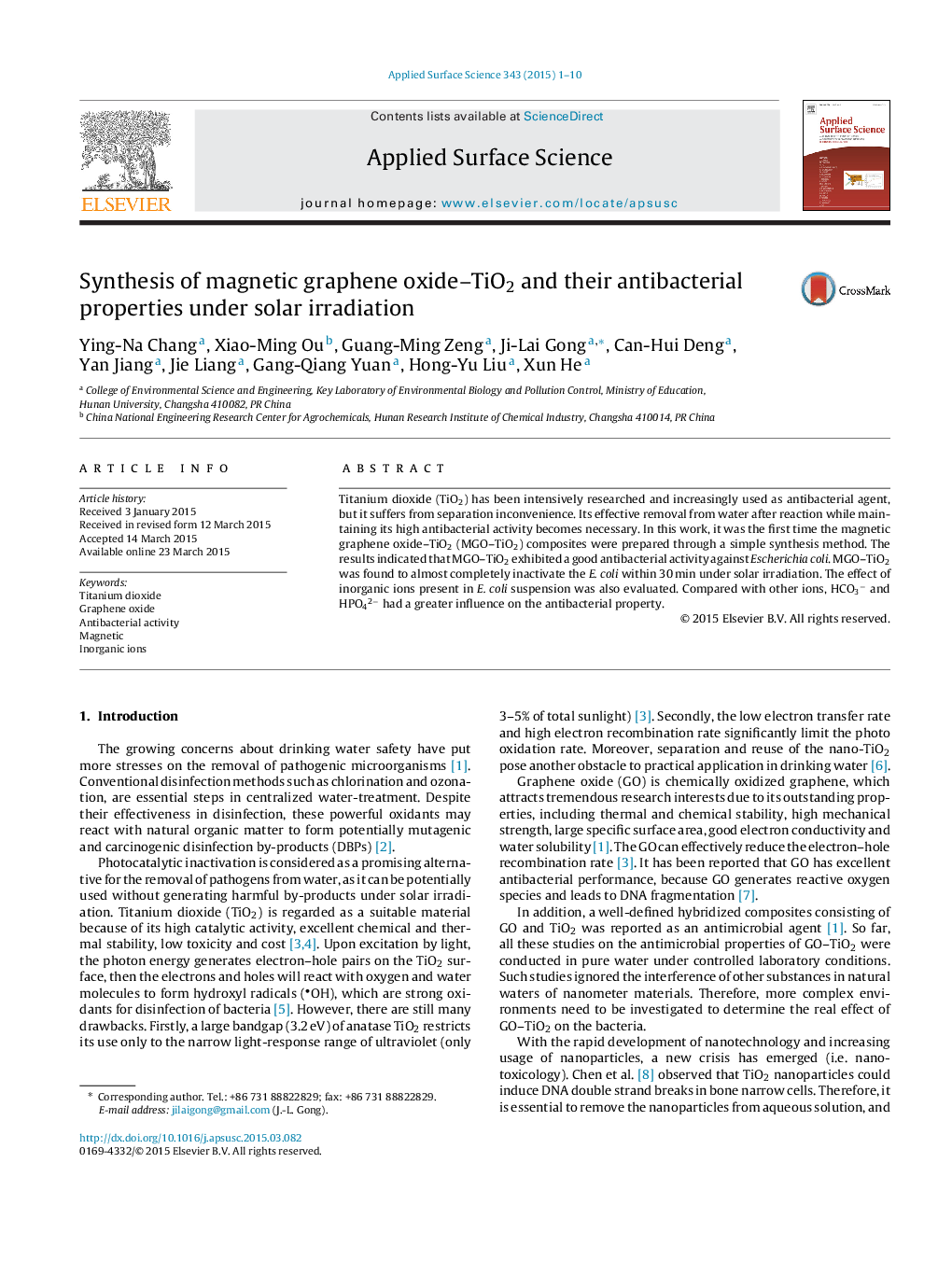| Article ID | Journal | Published Year | Pages | File Type |
|---|---|---|---|---|
| 5348466 | Applied Surface Science | 2015 | 10 Pages |
Abstract
Titanium dioxide (TiO2) has been intensively researched and increasingly used as antibacterial agent, but it suffers from separation inconvenience. Its effective removal from water after reaction while maintaining its high antibacterial activity becomes necessary. In this work, it was the first time the magnetic graphene oxide-TiO2 (MGO-TiO2) composites were prepared through a simple synthesis method. The results indicated that MGO-TiO2 exhibited a good antibacterial activity against Escherichia coli. MGO-TiO2 was found to almost completely inactivate the E. coli within 30Â min under solar irradiation. The effect of inorganic ions present in E. coli suspension was also evaluated. Compared with other ions, HCO3â and HPO42â had a greater influence on the antibacterial property.
Related Topics
Physical Sciences and Engineering
Chemistry
Physical and Theoretical Chemistry
Authors
Ying-Na Chang, Xiao-Ming Ou, Guang-Ming Zeng, Ji-Lai Gong, Can-Hui Deng, Yan Jiang, Jie Liang, Gang-Qiang Yuan, Hong-Yu Liu, Xun He,
